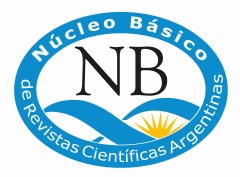LA REFORMA UNIVERSITARIA DEL '18: BREVE HISTORIA Y PERSPECTIVAS DE UNA ÉPOCA
Resumen
La Reforma Universitaria de 1918 implicó una ruptura con la negación persistente de los claustros a la alteridad. La movilidad ascendente que habían ganado la clase media, la masa de inmigrantes reformulando el crecimiento del espacio urbano permitieron -no obstante las injusticias propias de un sistema aferrado al statu quo colonial basado en la perpetuación en el poder de una clase dirigente - que los jóvenes estudiantes de Córdoba, aliados desde distintas procedencias y carreras, en consonancia con un gobierno Nacional que favoreció y apoyó el movimiento, dieran un grito reformista. Esta imagen se trasladó hacia Latinoamérica y Europa y llegó a nuestros días con reformulaciones de las prácticas profesionales, dentro y fuera de los muros propios de las universidades.
Palabras clave. Reforma universitaria, democratización de la enseñanza, medicina y salud pública, movimiento reformista, educación superior comparada.
UNIVERSITY REFORM OF 1918: BRIEF HISTORY AND VIEWS OF AN ERA
Abstract
The University Reform of 1918 meant a break with the persistent denial of the cloisters to otherness. The upward mobility that the middle class had won, the mass of immigrants reformulating the growth of urban space, allowed -in spite of the injustices of a system clinging to the colonial status quo based on the perpetuation in power of a ruling class - young students of Córdoba, allied from different backgrounds and courses, in consonance with a National government that favored and supported the movement, to give a reformist cry. The image of this spread throughout Latin America and Europe and got to our days with reformulations of professional practices, inside and outside the walls of universities.
Key words. University reform, democratization of education, medicine and public health, reformist movement, comparative higher education.
Descargas
Descargas
Publicado
Número
Sección
Licencia
Derechos de autor 2018 Claudio Berardi, Gabriela Lourtau, Hugo Milione, Cristian Panigadi, Andrea Díaz, Pascual Valdez

Esta obra está bajo una licencia internacional Creative Commons Atribución 4.0.








 Esta obra está bajo una
Esta obra está bajo una 